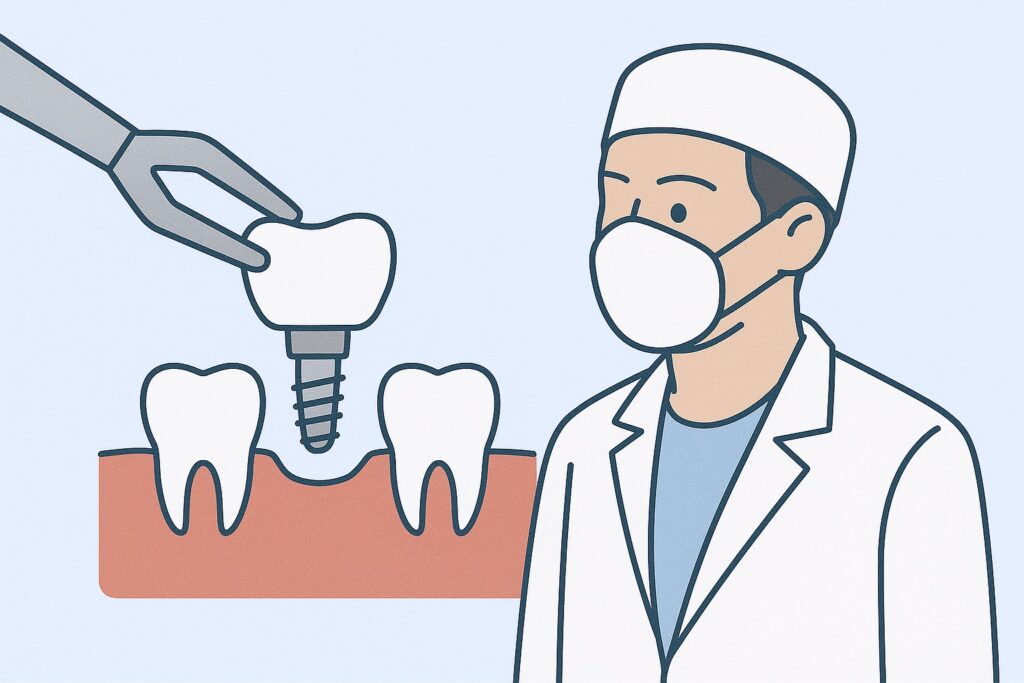Dental implants are often considered the most reliable and long-lasting solution for replacing missing teeth. They are designed to act like natural tooth roots and, in most cases, remain permanently in place. However, situations do arise where an implant needs to be removed. Patients may wonder if it’s even possible, how the process works, and what happens afterward. While implants are built to be strong and secure, dentists can remove them when necessary, though it is a delicate procedure that requires expertise.
Why Dental Implants May Need to Be Removed
While dental implants are designed to last for decades, certain circumstances can make removal necessary. Some of the most common reasons include:
Implant Failure
An implant may fail to properly fuse with the jawbone during the healing phase, a process called osseointegration. When this happens, the implant becomes loose and cannot function as intended.
Infection or Peri-Implantitis
In some cases, bacteria can accumulate around the implant, leading to gum inflammation and bone loss. This condition, known as peri-implantitis, may progress to the point where removal is the only option.
Nerve or Sinus Complications
If an implant is placed too close to a nerve or extends into the sinus cavity, it can cause chronic pain, numbness, or sinus issues. Removing the implant helps alleviate these problems.
Poor Placement or Bone Loss
Incorrect positioning during surgery or progressive bone loss over time can compromise the stability of an implant. When this happens, removal may be recommended before considering alternative treatments.
How Dental Implants Are Removed
The method used to remove a dental implant depends on how firmly it is attached to the jawbone. Dentists assess the situation through X-rays and clinical examination before proceeding.
Simple Removal
If the implant has not fused strongly with the bone or has already loosened, removal can be relatively straightforward. The dentist uses special tools to gently unscrew or lift the implant out of place.
Surgical Removal
When the implant is well integrated into the bone, surgical intervention may be necessary. This involves carefully cutting into the bone around the implant and using precision instruments to extract it without damaging surrounding tissues.
Recovery After Removal
Most patients experience mild swelling, soreness, or discomfort for a few days following the procedure. Dentists typically recommend pain management, antibiotics if needed, and proper oral hygiene to support healing.
What Happens After Implant Removal
Once an implant is taken out, the treatment plan depends on the reason for removal and the patient’s oral health condition.
Healing Process
The bone and gum tissue need time to recover. Healing usually takes a few weeks to a few months, depending on the extent of surgery and the individual’s overall health.
Options for Replacing the Implant
After healing, many patients can receive another implant. Others may consider alternatives such as dental bridges or partial dentures if implants are not suitable.
Bone Grafting and Re-Implantation
If bone loss occurred, a bone graft may be necessary before placing a new implant. This strengthens the jaw and provides a stable foundation for long-term success.
Risks and Considerations
Although dental implant removal is safe when performed by an experienced professional, it does carry some risks.
Damage to Surrounding Bone or Tissue
During surgical removal, a small amount of jawbone may be lost, and nearby gum tissue can be affected. This may require additional procedures, such as bone grafting, to restore the area.
Longer Healing Time
If extensive surgery is needed, recovery may take longer. Patients may need to wait before receiving another implant or restoration.
Importance of a Skilled Dentist
The success of implant removal and future treatment depends heavily on the dentist’s expertise. Choosing a qualified oral surgeon or implant specialist helps reduce complications and ensures the best possible outcome.
Conclusion
Dental implants are intended to be permanent, but removal is sometimes necessary due to infection, failure, or other complications. The process can be simple or surgical depending on how well the implant is attached to the bone. With proper healing and care, most patients can explore replacement options, including new implants after bone restoration if needed. Consulting an experienced dentist is the key to ensuring safe removal and planning the best long-term solution for oral health.

